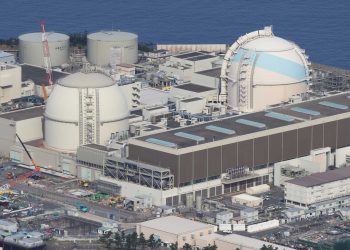Agence France-Presse,
MOSCOW: Russia may place nuclear-capable Topol missiles in neighbouring Belarus as a response to a controversial US missile shield in eastern Europe, a Russian defence ministry source was quoted as saying Tuesday.
“If the United States continues to bring elements of its strategic forces closer to Russia's borders, including missile-defence sites in Poland and the Czech Republic, which are aimed at the reduction of our nuclear deterrent, mobile Topol complexes could be placed in Belarus,” the source told Interfax news agency.
A defence ministry spokesman contacted by AFP declined to comment on the report.
Returning nuclear weapons to Belarus would be a major turnaround for Moscow, which removed its last nuclear missiles from the ex-Soviet republic in 1996, several years after the collapse of the Soviet Union.
The report came one day after Belarussian President Alexander Lukashenko met his Russian counterpart Dmitry Medvedev in Moscow and reached a deal on the deliveries of Russian gas to Belarus.
Russia has reacted angrily to US plans to place elements of a missile shield in Poland and the Czech Republic, threatening counter-measures including the deployment of Iskander short-range missiles in its western Kaliningrad region.
A top Russian official reiterated the threat on Tuesday, stressing that the Iskanders would not be deployed in Kaliningrad — which borders the European Union — if the United States backed down on its missile shield.
“If there will be no third position area of missile defence, there will be no Iskanders in Kaliningrad,” Deputy Prime Minister Sergei Ivanov said in an interview published in the Izvestia daily.
“We are in no way preparing to get caught up in an arms race,” he added.
The term “third position area” refers to US plans for an anti-missile radar facility in the Czech Republic and interceptors in Poland. The first two parts of the missile shield are in the US states of California and Alaska.
The United States says its missile shield is not a threat to Russia and is instead meant to protect against “rogue states” like Iran.









